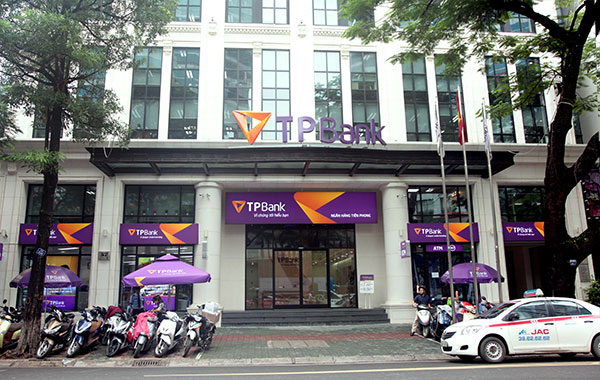Moody’s assigns first-time ratings to Vietnam’s TPBank
 |
US-based Moody’s rated lender’s short-term local and foreign currency deposits and issuing at ‘Not Prime,’ while assigning b3 to TPBank’s base line credit assessment (BCA) and adjusted BCA. Counter Risk Assessments of B2(cr)/NP(cr) was also given to the lender.
“The B2 long-term ratings assigned to TP Bank reflect: (1) its BCA of b3, and (2) a one-notch uplift based on Moody’s expectation of a “moderate” probability of support from the Vietnamese government (B1 stable),” Moody’s said in a statement dated October 24.
According to Moody’s, TP Bank’s asset risk was elevated, but stayed largely in line with the average bank in Vietnam. Around 6 per cent of its adjusted gross loans were problematic at the end of June 2016.
TPBank’s asset quality weakened marginally in the first half of 2016 because of a higher stock of VAMC assets related to one corporate client. Moody’s expects that TPBank’s asset risk will remain lofty in the next 12-18 months because of rapid loan growth. TPBank’s loan growth amounted to 42 per cent in 2015 and 30 per cent in the first half of 2016, which Moody's views as above the market average.
In a bid to strengthen its capital buffer to accommodate asset growth, TPBank has attracted VND403 billion ($18 million) in preferred stock from International Finance Corporation (IFC) in the third quarter of 2016. This transaction has improved the bank’s regulatory Tier-1 ratio by around 100 basis points, but had a neutral effect on Moody’s tangible common equity (TCE) ratio because Moody’s does not include preferred shares in its calculation of core capital.
In terms of government support for TPBank, Moody’s uses the same “moderate” support assumption as for other private-sector banks in the country.
As a result, TPBank’s B2 long-term ratings include a notch higher classification from its b3 BCA. The “moderate” support assumption is mainly underpinned by the bank’s market share of around 1.2 per cent of system assets as of June 2016.
TPBank was one of the nine banks classified by the central bank as weak and fragile lenders that needed restructuring in 2009.
TP Bank, as noted by Moody’s, has a high reliance on market funding. At the end of June 2016, 36 per cent of its assets were financed by market funds, comprising mainly deposits and borrowings from other banks. To some extent, this risk is balanced by the bank’s very liquid balance sheet, with cash, interbank assets, and up-for-sale securities accounting for 50 per cent of its total assets on the same date.
The bank is privately-owned. Its major shareholders included Japan-based investment firm SBI Holdings and related companies holding around 20 per cent combined, Vietnam’s gemstone trader DOJI Group and related individuals (19.9 per cent), and telecommunications giant FPT Corporation (around 9 per cent), and IFC (4.99 per cent).
What the stars mean:
★ Poor ★ ★ Promising ★★★ Good ★★★★ Very good ★★★★★ Exceptional
Latest News
More News
- VPBank strengthens auto supply chain finance with Suzuki partnership (January 21, 2026 | 18:14)
- Retail stocks poised for growth as consumption recovery and policy tailwinds align (January 21, 2026 | 10:07)
- Key factors to watch in the stock market in early 2026 (January 20, 2026 | 11:42)
- Dragon Capital Vietnam Fund Management shares debut on UPCoM (January 19, 2026 | 14:47)
- Vietnam’s private capital market enters selective recovery phase (January 19, 2026 | 11:49)
- Vietnam’s credit quota seen as safeguard for banking discipline (January 19, 2026 | 10:00)
- Miza Nghi Son green bond marks milestone for sustainable finance (January 19, 2026 | 09:51)
- Higher 2026 growth target puts pressure on credit framework (January 19, 2026 | 09:00)
- VN-Index could reach 2,040 points in 2026 (January 16, 2026 | 16:41)
- Vietnam’s corporate bond market set for a more positive 2026 (January 15, 2026 | 14:10)

















 Mobile Version
Mobile Version